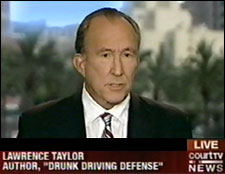Tens of Thousands of DUI Cases Affected by Tainted Breathalyzers in Massachusetts
Posted by Jon Ibanez on September 20th, 2018Prosecutors in the state of Massachusetts have agreed to stop using breathalyzer results dating back to 2011 as a result of improper calibration of the breathalyzers when the machines were first purchased by the state. What’s more, state officials later attempted to hide the machines’ flaw from both defense attorneys as well as prosecutors.
The agreement will be presented this week to Judge Robert Brennan, who has been overseeing the proceedings challenging the reliability of the Draeger 9510 since 2015.
Although prosecutors in Massachusetts had already agreed to stop using results from June 1, 2011 to June 14, 2014, defense attorneys learned that state officials in the Office of Alcohol Testing, which is part of the Massachusetts State Police Crime Lab, had withheld hundreds of documents that a judge had ordered them to overturn. Those documents showed a higher calibration failure rate than state officials had previously reported.
According to defense attorney, about 36,500 test results have been affected by the calibration flaw. This includes nearly every breathalyzer result obtained since 2011.
People who were convicted of a DUI where the breathalyzers results were obtained from within that timeframe can seek a new trial if their conviction was based solely on the breathalyzer results. People convicted of a DUI cannot, however, seek a new trial if their conviction was at least partly based on other evidence of intoxication such as observed poor driving by witnesses or police, video, or field sobriety tests.
According to Jake Wark, a spokesman for the Suffolk County District Attorney’s office, the actual number of affected cases will be “significantly lower” than 36,500 because it will not include cases where a breathalyzer was given to a person before being put into protective custody or where someone was given a breathalyzer to show them how the machine works.
Contrary to the usual adversarial rapport between defense attorneys and prosecutors, defense attorneys are maintaining that prosecutors and law enforcement are not to blame for the monumental blunder.
“It was not the assistant district attorneys who were withholding the material, said Joseph Bernard, an attorney leading the litigation over the machines. “They had nothing to do with this and when they found out, they rose up.”
Prosecutors are, however, still arguing to use the results in DUI cases involving death or severe injury, or in fifth or subsequent DUI cases. Additionally, prosecutors are proposing a cutoff date of August 31, 2017, after which they can begin using the breathalyzer results again.
Defense attorneys are arguing that the use of the breathalyzer results should continue to be halted until the state lab obtains accreditation by a national standards group, ANSI-ASQ National Accreditation Board, which likely wouldn’t happen until 2020.
It shouldn’t come as a surprise to anyone where I fall on this. If the results are faulty, they should not be used in any DUI case, including those that involved death or serious injury and fifth or subsequent DUI’s. The seriousness of the offense does not justify the use of tainted evidence.
Furthermore, those convicted of a DUI should not be barred from re-trial simply because other evidence existed. Just because other evidence exists that tends to show intoxication doesn’t mean that that evidence alone and without the breathalyzer result would have produced the same result.
We’ll have to wait and see how this, as I referred to it earlier, monumental blunder plays out in Massachusetts.


